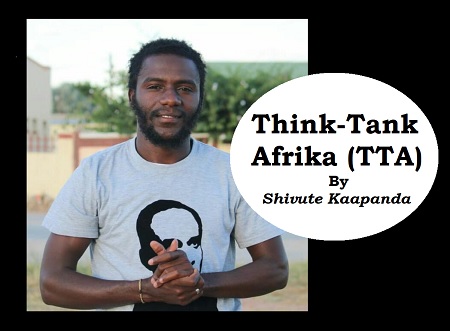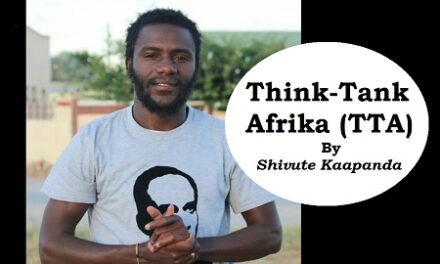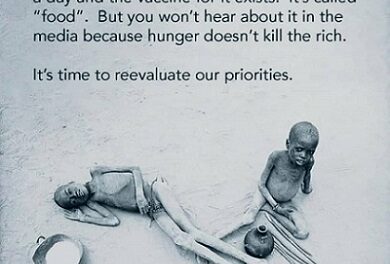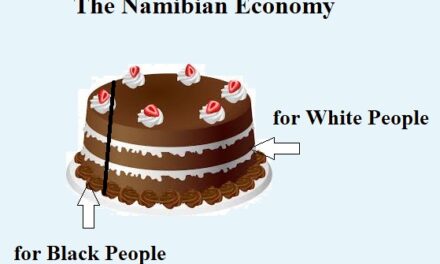Is Namibia’s education system robotic?
By Shivute Kaapanda [Think-Tank Africa]
In Africa, Namibia in particular, we have robotic school systems which are not preparing learners for their real dreams and aspirations in life.
Learners are taught throughout the year, and at the end of the year they are to be blamed if they couldn’t memorise the whole textbook so that they may give the robot answers to the robot questions given by the teachers in classes.
Imagine a classroom of 40 pupils being given a robot test of fifteen questions and if they were to be correct in their answers they are all expected to give the same answers to the same questions; this is a robot system that presents all pupils as one and undermine learners’ intelligence and uniqueness by putting them all on one scale.
Imagine a pupil being called “stupid” just because a teacher presented to him or her a 456 pages textbook, explain a few things if need be and expect a leaner to obey all that the textbook prescribes into answering a one hour test or a two hours exam, and then the leaner did not pass it.
Imagine the magnitude of bad words a teacher or a principal would say to a learner who is intelligent but cannot perform in a robotic school?
Imagine the amount of praise teachers give to learners that can perform well in robot-like tests in school? More worse imagine a government failing to promote learners with an E symbol in English but with five A symbols in the rest of the subjects?
Can you imagine a university that denies graduation to a student who is struggling with only one subject to finish the course of study but upon completion a university cannot guarantee internship or employment?
Imagine learners in one class given the same exam and are all expected to do well in that exam?
Those that did not do well are deemed to be idiots and are left with no choice but to heal their own psychological scars due to the fact that God has given them no talent in memorising textbooks and summaries.
The school system is designed to determine which learners are good at memorising and not learners to show their creativity.
Imagine a country where people regard those who go to universities as more intelligent than those who go to vocational institutions?
That most graduates in Namibia are unemployed is a striking reality, universities have become the commercial centres only producing an annoying number of unemployable graduates who go back home from where they came before they entered the doors of universities. Those with creativity will realise only after graduation that should they used their creativity before entering universities such could have been the best investment for them.
Our education system lacks the diversity elements of creativity; that those pupils who excel in sports (physical education) and arts (arts and drawings) are not taken serious.
If one is to judge a lizard and a tortoise by their ability to climb a tree, the tortoise will live the rest of its life believing that it’s stupid due to its inability to climb up a tree and that a lizard is smart due to its ability to climb a tree. But when did climbing up a tree become a measure of all intelligence?
Same to people. Our abilities and creativities are not exactly the same, therefore using robotic question papers, which sometimes are multiple choice questions, is tantamount to intellectual bankruptcy and a process that ultimately leads to a collapsed education system.
In conclusion, it’s fair to say that one cannot perform the work of a robot better than the robot itself, but we should strive for human intelligence if we are to succeed rather than focusing on a robotic education system which is naïve.
Shivute Kaapanda is a critical thinker and writer from Eyanda village. He is the author of the book “The Conscious Republic”. iskaapanda@gmail.com







